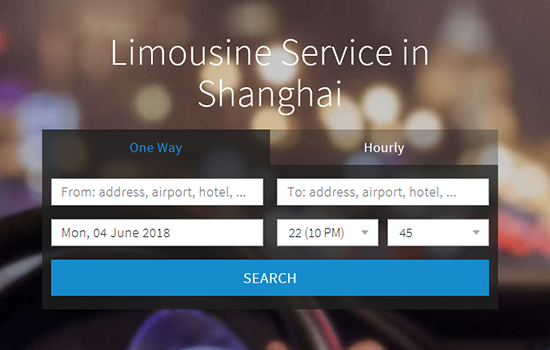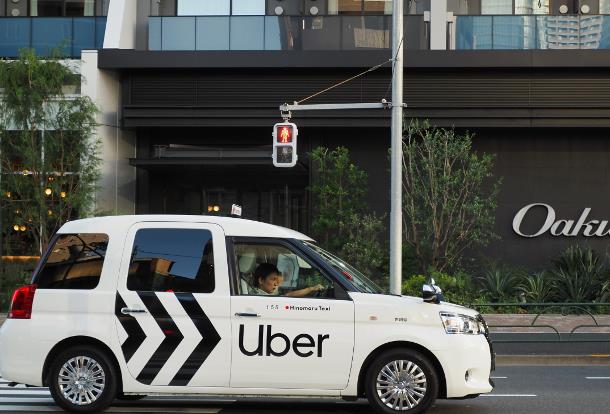ChinaTravelNews, Ritesh Gupta - Berlin-based near-demand chauffeur service Blacklane believes the timing is apt to step up their presence in China, targeting the lucrative outbound segment via the partnership route. At the same time, the German company is pragmatic about introducing a domestic service in China at this juncture and acknowledges that the hardships associated with it need a deeper introspection before it does the same.
“Travel is borderless, and there is a need for a borderless business model,” Jens Wohltorf, Co-founder and CEO of Blacklane, told ChinaTravelNews in an interview.
“Evaluating a country like China, we assess it from three dimensions. First, the inbound segment in which we fulfill the ride requests of travellers coming into China. We have brought local car service providers on our network for this. Second, outbound. For this we need to create awareness about our brand in China. Third, domestic – for Chinese travellers in China, that’s the most difficult piece (of business),” mentioned Wohltorf, whose company has focused on digitizing professional driver services offering a high-quality black car rides (for instance, featuring Mercedes E-Class, V-Class and S-Class among the others) and raised around USD 85 million in funding till date.
Taking the partnership route in China
Wohltorf pointed out that since the company’s inbound business is thriving in China, owing to users/ operations in North America and Central Europe, it is time to concentrate on the outbound segment.
“And this can be best approached via the partnership route,” he said.
Recently, Hainan Airlines chose Blacklane exclusively for complimentary U.S. airport transfers.
In another deal, Baidu-backed ride service Shouqi Limousine and Chauffeur chose Blacklane to be their global partner for premium rides.
“Shouqi is one of the biggest ride-hailing and car service providers in China (app-based service, with more than 32 million registered customers). They have millions of active users within their platform. And whenever those travellers are going out of China, there is no Shouqi available. Now our systems are connected, so Shouqi app users can book a Blacklane car. We are leveraging Shouqi’s brand power and presence to create awareness for our own offering in China. We are also supporting Shouqi users with dedicated Mandarin-speaking customer care agents as well,” said Wohltorf. Commenting on the fit, considering the fact that Blacklane is different from the likes of Uber and Didi, he said, “Blacklane is focused on business travellers or those who are looking for high-quality, high-comfort experience at an affordable rate. Not only are our cars striking, but price-wise manageable, too. There are local car service providers in the corporate world here in China, with premium ambitions of attaining certain service levels. So there is a fit with us, and we have worked on smooth transition of a customer from one platform to the other to facilitate bookings.”

The partnership route is proving to be a logical decision for a foray in this market. When foreign companies attempt to target this market on their own, it ends up being an uphill tussle. For instance, owing to choked international bandwidth and the Great Firewall of China, distribution of content from servers placed in non-Chinese locations results in a mediocre UX. Website performance and availability is another issue. Other than infrastructure-related issues, local payments, user interfaces and customer behavior all have regional nuances. Also, if foreign brands were to promote their app from the beginning, it again would demand an elaborate effort.
Wohltorf acknowledged the same and shared, “Organizations have to be prepared to localize in a prudent manner. Connection to mapping APIs in the western hemisphere doesn’t work here. Google doesn’t work. Google APIs don’t work. Payment options are different – need to activate options for transactions such as Alipay, WeChat pay etc. And with these partnerships, we are having an API connection between our systems. So this means Chinese travellers do not have to leave their known, preferred ecosystems. The Shouqi app they are familiar with comes to use. Integration was done in a matter of weeks since we have a standard API – RESTful JSON API streamlined and easy to use. We end up with a replica of the Blacklane experience within the Shouqi app.”
Leveraging existing customer ownership for localization
The decision to introduce a standalone brand in China is “still under discussion,” said Wohltorf.
“It has been witnessed in other cases, especially in the transportation market, (foreign) brands haven’t met much success, and burnt billions of dollars in order to try to launch their brand locally and failed. With our experience in premium chauffeur service – how the drivers should respond and serve, how they need to be trained, also the operational and security layer around such a service etc. – this is where we can help our local partners to build liquidity in the marketplace (bringing the supply side and the demand side or buyers closer to each other),” said Wohltorf. Examples of two-sided marketplaces are Uber and Airbnb.
As for possible entry routes in the domestic market, he said it is imperative to have a strong partner from the transportation or the travel industry. “One (the potential partner) player already known in the market but struggling to introduce a premium chauffeur service (would be the likely partner for alliance),” he said. “While product would be Blacklane’s strength, customer ownership is in “good hands” with the local strategic partner. Also, they would be having a critical count of corporate contracts in their arsenal, millions of users using this product and the inclusion of Blacklane even as a branded service could be a possibility, since the brand is known is for quality, duty of care and reliability. There would be a synergy between partners – we can leverage customer access of our partner and they can bank on quality promise that Blacklane delivers.”
He added in addition to the new tie-ups, even the existing ones in China would be worth going deeper. For instance, in case of Shouqi, they aren’t serving the premium service classes yet. “So we would also support Shouqi in building up the liquidity, infrastructure in terms of cars and chauffeurs, and we provide them option to serve their customers in 250 cities when they leave the country,” said Wohltorf, who added the Blacklane serves Chinese carriers in certain outbound markets. He added that app/ system integration is a progress the way the company is working with companies in China now. Plus, Blacklane also works with the likes of travel management companies, local concierge services etc. for extending their brand offering out of China to their Chinese customers.




